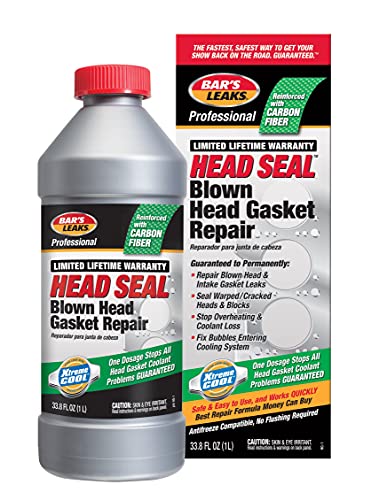It's always best to pay attention to your car and spot any symptoms of a faulty head gasket to prevent unexpected repairs. However, is it possible for a blown head gasket to occur without any clear signs? We've collected information on this question to help get the correct answer.
A blown head gasket won't occur without symptoms. It's possible that a car owner fails to notice the symptoms of a blown head gasket or ignore them, leading to further problems. Whenever you feel that your car is behaving abnormally, it's best to have it checked by an expert.
Continue reading to learn what symptoms you need to know for when your car has a blown head gasket. You will also find out the repair costs of a blown head gasket and ways to prevent it from happening.
Can A Blown Head Gasket Occur With No Symptoms?
A blown head gasket is a set of words that many car owners do not want to hear due to how expensive it can be to repair and replace one. However, a blown head gasket can't occur without showing symptoms, so you'll have a warning when issues arise.
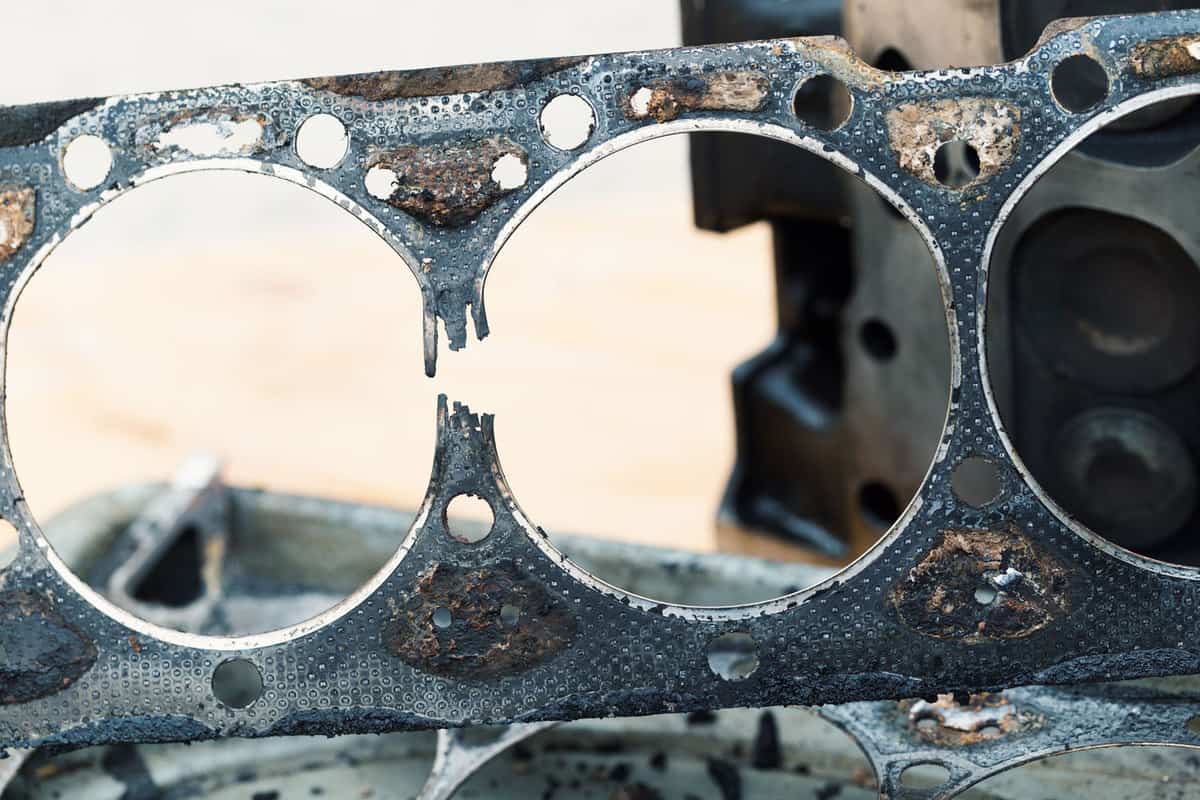
The head gasket handles your car's engine pressure and separates certain liquids. A small crack is enough to produce noticeable symptoms.
However, sometimes first-time car owners overlook such signs. The two significant symptoms of a blown head gasket are an overheating engine and thick white exhuast smoke. These two symptoms do not prompt a sense of urgency, but are a precursor to more issues and damage to the head gasket.
Check this head gasket on Amazon.
Common Symptoms Of A Blown Head Gasket
The most common symptoms to spot a blown head gasket are:
Engine Overheating
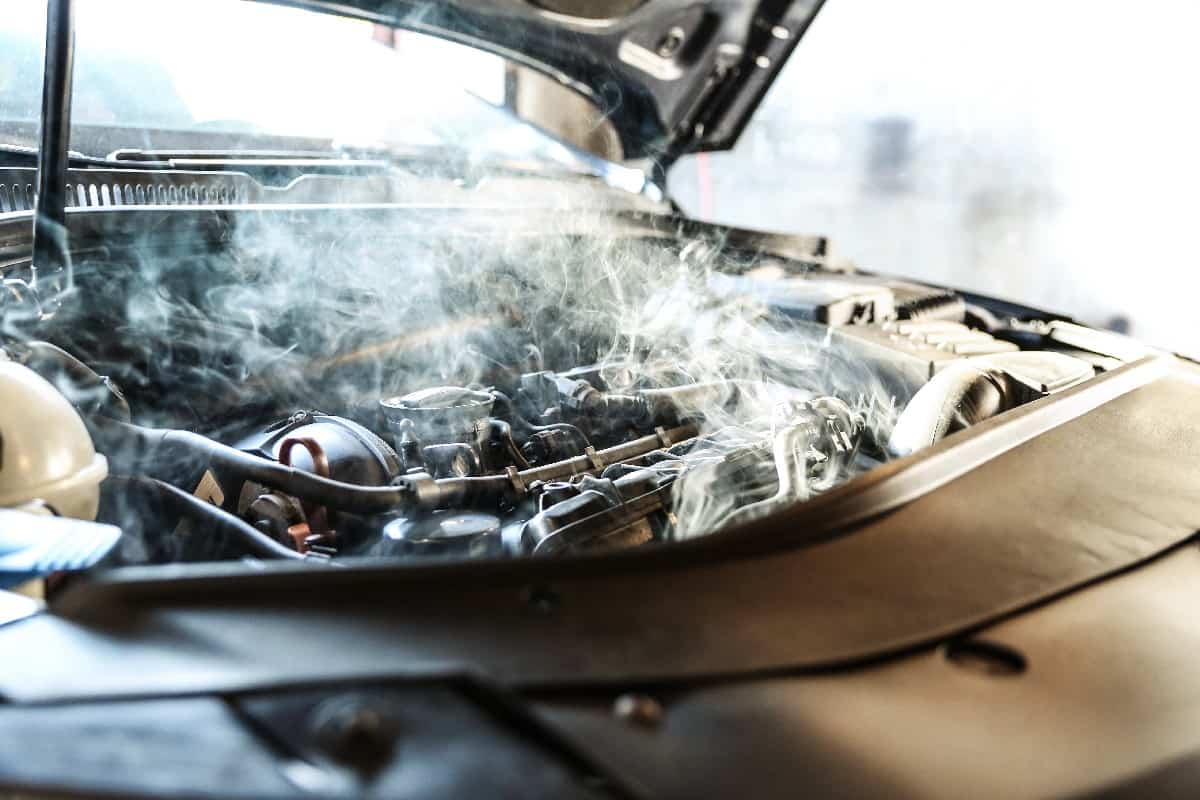
Even the most minor crack will release the pressurized hot gas, causing the engine to overheat. In other cases, the coolant will leak out, and the engine will also overheat.
Those who ignore this problem might assume it's due to driving their car out for too long or hot weather. However, it's always best to check under the hood when dealing with an overheating engine, or else you will pay the price later on.
Thick White Smoke
Another common symptom that many new car owners ignore is thick white smoke coming from the exhaust pipe. This usually occurs when there's a coolant/oil leak. The leak flows into the combustion chamber, causing it to evaporate and come out as thick smoke.
As such, it's possible for there to be a leak without any accumulation of liquid below the car. So if you're car is blowing unusual thick white smoke, have an expert take a look.
Oil/Coolant Leaks
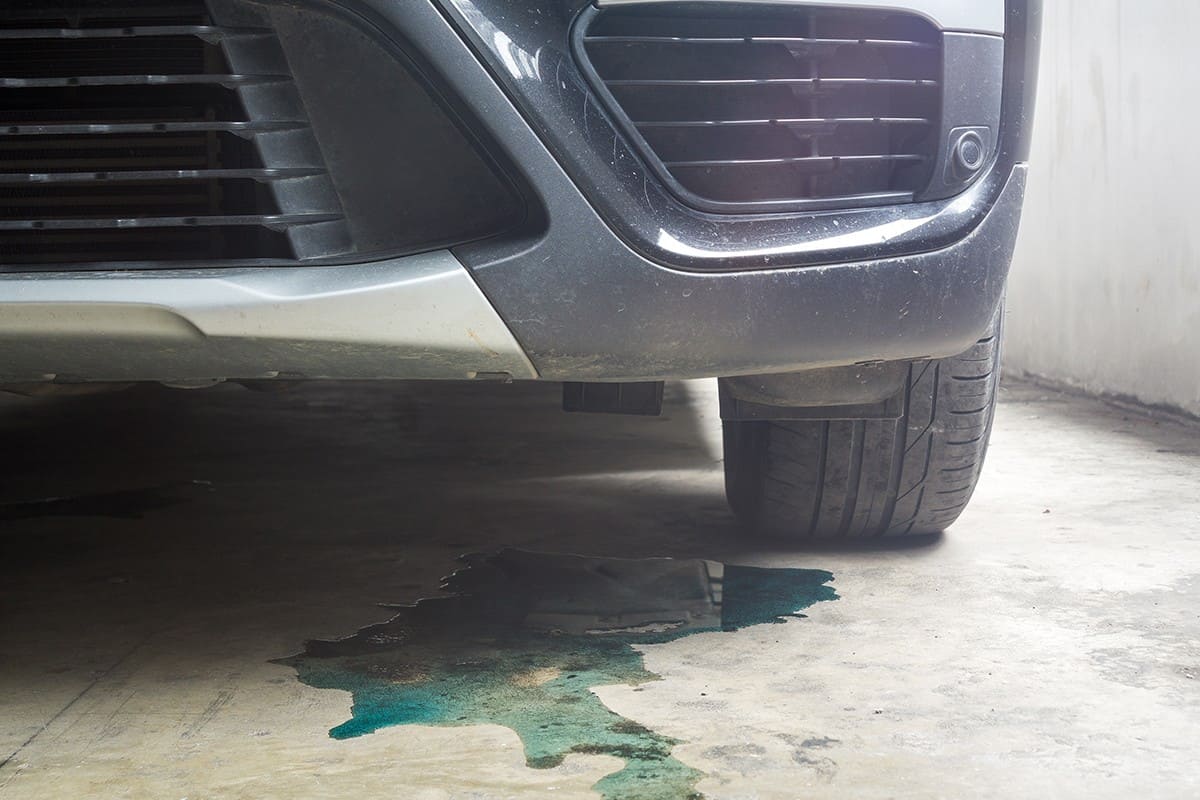
You must be aware of leaks when dealing with a blown head gasket. A crack in the seal can easily cause both coolant and oil to leak out.
If the coolant level of your car starts dropping off at a fast pace, it's a sign of a leak. Check for puddles beneath your car when parked and the scent of something chemically sweet.
Poor Engine Performance
If your car starts making loud and weird noises, it's best to take it to an auto shop immediately. You might be dealing with a blown head gasket.
Because of the crack, the pressure sealed within the head gasket starts to leak out. That causes the car engine to work harder than usual to stabilize. Any weird noise you hear and a decrease in engine power are symptoms you need to hvae checked out.
Milky White Discoloration
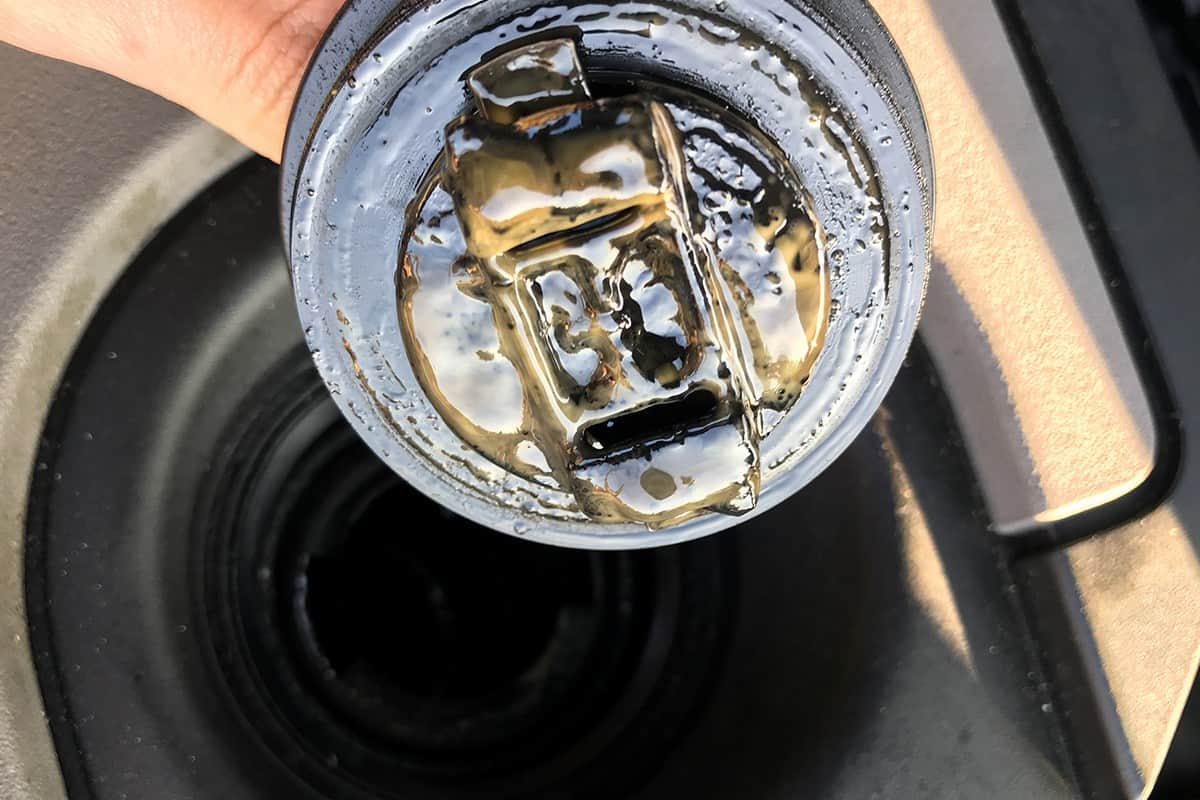
Lastly, check the underside of an engine oil filler cap. If there's a white milky substance on top of it, it's a sign of a faulty head gasket.
It occurs when the coolant starts leaking into the engine oil and mixing with it. The result is a white sludge that's contaminating your engine oil and decreasing the engine's efficiency.
Is It Possible To Drive A Car With A Blown Head Gasket?
While one can drive a car with a blown head gasket, most professionals advise not to. That's because you could worsen the damage to your vehicle. If you insist on driving it around in such a condition, a blown head gasket could become the least of your worries.
Instead, you could see yourself forking a lot of money to rebuild the engine, which, at that point, it's better to buy a new car.
The cost of replacing a car engine nowadays is between $4,000 and $10,000, depending on the brand. And while you can save money if you choose to rebuild the engine with salvaged parts, it drops the overall value of your car. Therefore, buying and installing a new engine is the only option.
To avoid an empty wallet or without a car, engage the services of a professional for proper diagnosis.
Cost Of Repairing A Blown Head Gasket?
If you immediately spot the symptoms of a blown head gasket in your car, you can save yourself a lot of money. However, that doesn't mean that the repair is cheap. On average, it will cost you between $1,000 to $2,000.
The price depends on the model of your car and how it's repaired. Repairing a blown head gasket is expensive due to the strenuous labor and the time it takes but not the parts used.
Can One Repair A Head Gasket Without Professional Help?
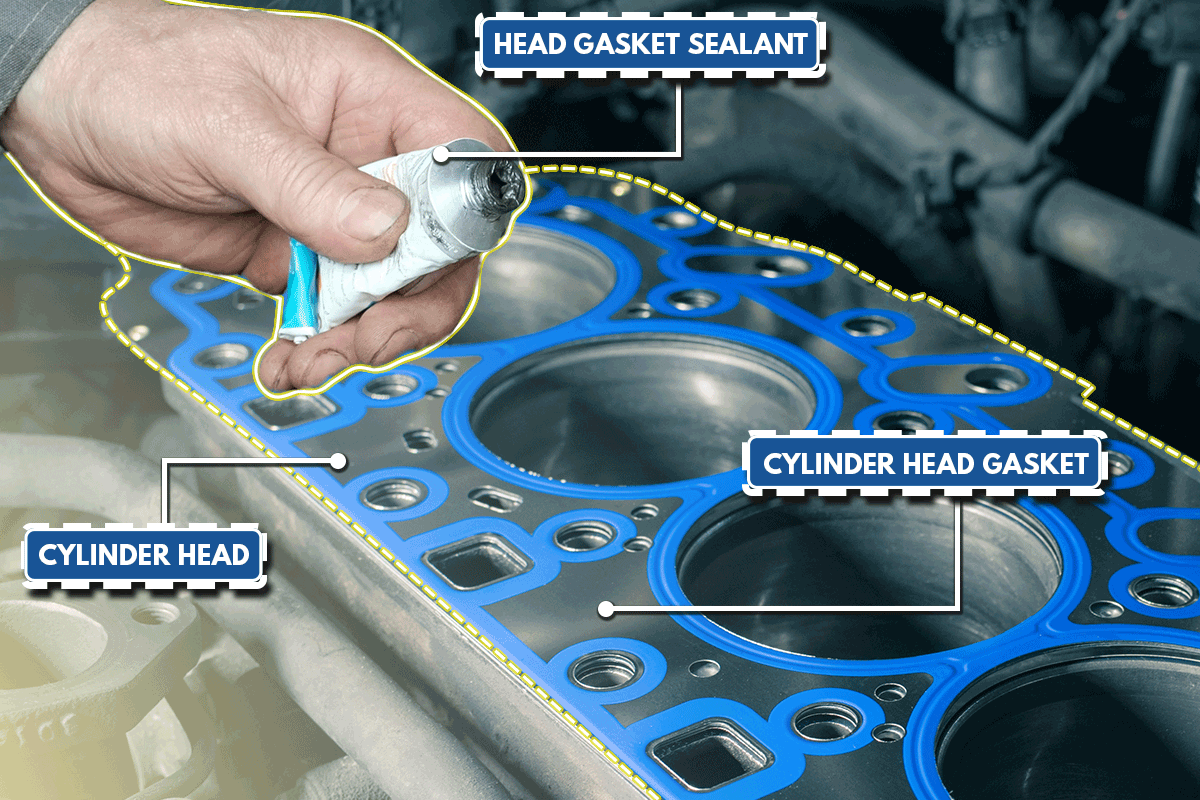
In some cases, however, you won't need to spend much repairing a blown head gasket. Depending on the severity of the damage, you can fix one yourself.
To do this:
- Buy a commercial head gasket sealant.
- Apply it to the affected area.
- Afterward, wait for it to harden and check if the symptoms persist after the repair.
However, note that this only works on the tiniest cracks, which are barely an inch wide. It's always better to have an expert look at the damage and determine if the sealant works or if it's better to replace the head gasket.
For a more detailed guide on how to repair a blown head gasket, check the link provided below:
How To Fix A Blown Head Gasket Without Replacing It [Step By Step Guide]
Click here to see this head gasket sealer on Amazon.
How Long Do Head Gaskets Typically Last?
On average, a regular head gasket usually lasts for 200,00 miles. In theory, this means it can last as long as your car's lifespan.
However, a head gasket subjected to constant stress and pressure wears down its durability over the years. As such, it's best to keep your car well-maintained to spot problems earlier.
To read more on how long a Toyota head gasket lasts and more in the link provided below:
How Long Do Toyota Head Gaskets Last?
What's The Best Way To Maintain A Head Gasket?

Prevent a blown head gasket by scheduling your car for yearly maintenance. Checking the guide when buying a new car is crucial to achieving the best results. If the car manual is no longer available, take your vehicle to an auto shop and have them schedule your yearly car maintenance based on their findings.
Alternatively, use a high-quality coolant and engine oil. It reduces the stress on the engine, preventing the head gasket from going beyond its standard capacity.
To Wrap Up
It's unlikely to get a blown head gasket without any symptoms, but a lack of knowledge may cause the car owner to overlook the small changes in their car. That is problematic when it comes to identifying a blown head gasket.
Consider checking the links provided below for more helpful information on car gaskets.
What Does A Blown Head Gasket Sound Like? Here's What You Should Know!


